
Annual naXys Research Day 2019
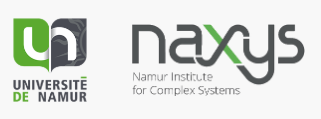
Albert | events | 22/10/2019
Invited talk about the specificities of the Universitat de Barcelona Institute of Complex Systems (UBICS)
PhysPlex 2019
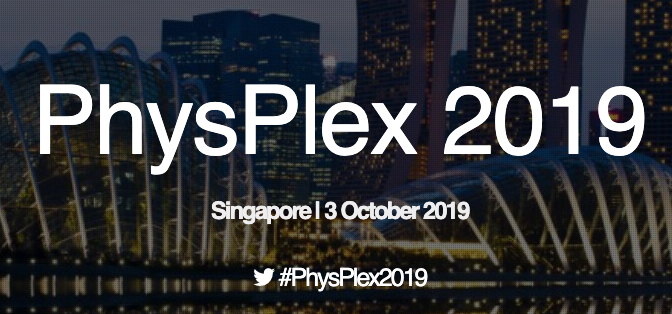
Albert | events | 03/10/2019
The scope of the satellite meeting is to review the recent advances in the field of multilayer and interconnected networks, focusing in particular on the interplay between structure and dynamics. We will pay special attention to novel applications in which the multilayer formulation is crucial. The list of topics that we aim to cover at the conference is the following:
1. Mathematical properties of multilayer and interconnected structures
2. Empirical measurements of multilayer and interconnected networks
3. Applications of such models to biological, social, economic, technological and urban systems
Mediterranean School of Complex Networks 2019
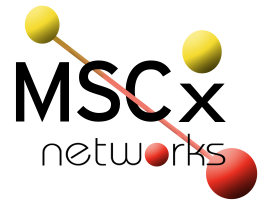
Albert | events | 31/08/2019
In the last decade, network theory has been revealed to be a perfect instrument to model the structure of complex systems and the dynamical process they are involved into. The wide variety of applications to social sciences, technological networks, biology, transportation and economic, to cite just only some of them, showed that network theory is suitable to provide new insights into many problems.
Given the success of the Fifth Edition in 2018 of the Mediterranean School of Complex Networks, we call for applications to the Sixth Edition in 2019.
More info: http://mediterraneanschoolcomplex.net/
Nonlinear dynamics in multiplex networks. Talk at the Institute for Chemistry and Biology of the Marine Environment, Universität Oldenburg
Albert | events | 04/07/2019
Dynamics Days Latin America and the Caribbean, 2018

Albert | events | 26/11/2018
Since its beginnings, a key goal of the Dynamics Days LAC has been to promote cross-fertilization of ideas from different areas. In particular, the meeting is deliberately structured to encourage active participation from young scientists, through invited and contributed oral presentations or posters. On this occasion, there will be also thematic mini-symposia, ranging from brain networks, power grids and information technology, to smart cities and social networks.
More info: https://ddayslac2018.org/
Complex networks: from socio-economic systems to biology and brain
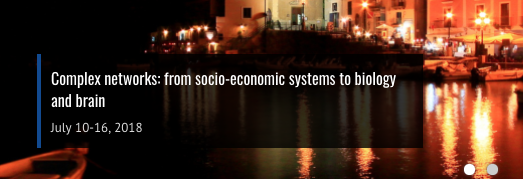
Albert | events | 10/07/2018
The aim of this workshop is to gather the community of scientists working in the different branches of network theory applied to social and natural sciences in order to create new synergies and potential scientific advancements.
Pint Of Science 2018

Albert | events | 15/05/2018
Ho sabem. Estem rodejats d'informació que ens arriba per tots els canals possibles. Xarxes, xarxes, per tot arreu. Xarxes que ens registren, que ens retraten, que ho saben tot de nosaltres. Els missatges, el transport, l'electricitat, el clavegueram, els nostres amics, els nostres seguidors, els documents que llegim, .... Totes aquestes xarxes són força complexes només considerant-les aïlladament. Aiiii, sí, però al final resulta que estan totes lligades entre elles, quina complexitat!
Las 'fake news' ganan por goleada
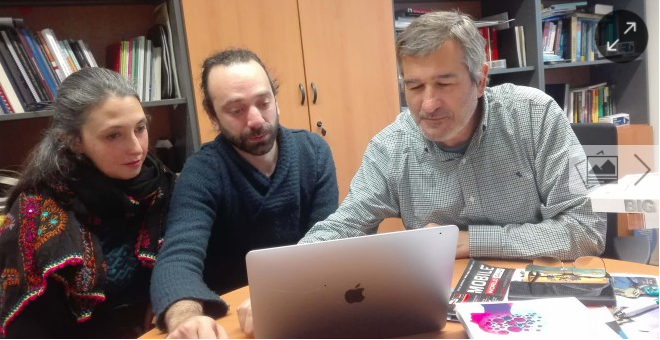
PĂşblico | events | 26/03/2018
Las 'fake news' ganan por goleada
'Público' habla con los expertos en estudios de sistemas complejos Albert Díaz-Guilera, Luce Prignano y Emanuele Cozzi para conocer en mayor profundidad el mundo de las noticias falsas
AMCOS conference
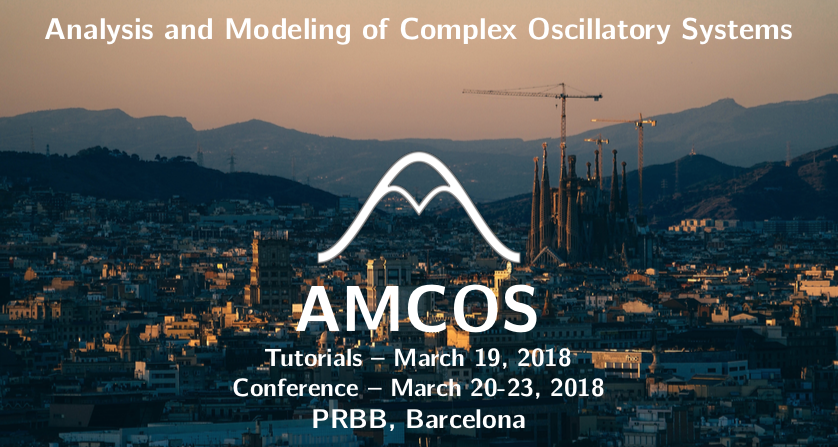
Albert | events | 21/03/2018
The AMCOS conference aims at bringing together renowned experts and young researchers who work on the modeling of complex systems and the emergence of collective phenomena, as well as on the analysis of complex data sets in order to infer structure and functionality of networks. Particular focus lies also on oscillatory dynamics in neuroscience and physiology. Accompanying tutorials by leading experts will interactively introduce the different conference themes. Registration and abstract submission for contributed talks and poster presentations will open 15/10/2017.
More info: https://amcosconference.com/
Network Frontier Workshop 2017
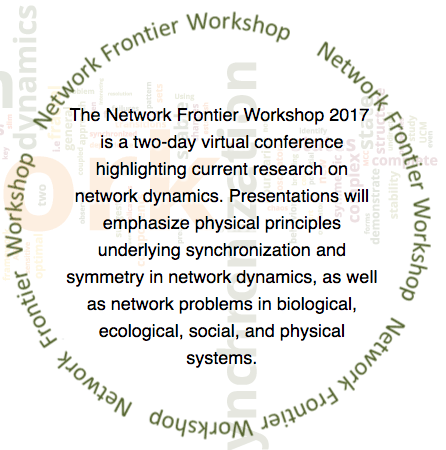
Albert | events | 11/12/2017
The Network Frontier Workshop 2017 is a two-day virtual conference highlighting current research on network dynamics. Presentations will emphasize physical principles underlying synchronization and symmetry in network dynamics, as well as network problems in biological, ecological, social, and physical systems.
More info: http://netfrontier.northwestern.edu/
Online presentation: https://www.youtube.com/watch?v=eX0Vk6A7QOM&list=PL4DIbjM-VKPQzd0Q9jayUf0NvC5CxR6Ci&index=21&t=0s


